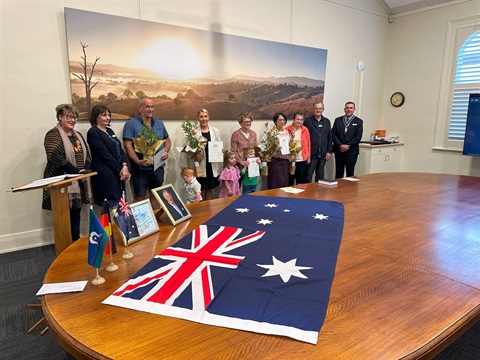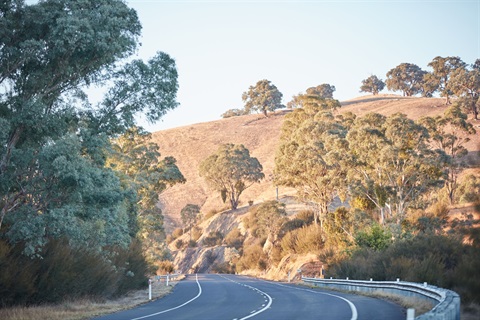FEBRUARY 20, 2024, NEW YORK – We extend our warmest congratulations to Chi Van Dang, scientific director of the Ludwig Institute for Cancer Research, on his receipt of the 2024 AACR-Margaret Foti Award for Leadership and Extraordinary Achievements in Cancer Research. The eponymous award, established in 2007 in honor of the chief executive officer of the American Association for Cancer Research (AACR), is given annually to a person whose work and leadership have had an enduring impact on the field.
“I can think of few people as deserving of this award as Chi,” said Edward McDermott, CEO of the Ludwig Institute. “Having had the pleasure of working closely with him for several years now, I can attest to his remarkable vision not only as a scientist but also as a leader of scientists, a catalyst for innovation, a champion of the field and an enabler of its increasingly exciting possibilities. His work has had-and continues to have-an enormous impact on cancer research, not only in its identification of new drug targets but also in its profound influence on new approaches to cancer therapy. I think I speak for the entire Ludwig community when I say we could not be happier-or prouder-to learn he has received this prestigious award.”
A physician-scientist, Dang helped pioneer the modern study of cancer metabolism, a field he entered almost fortuitously in the mid-1980s as a research fellow at the University of California, San Francisco, when his advisors handed him an oncogene named Myc to investigate. In 1988, he and his colleagues demonstrated that the oncogene, a transcription factor, bound to DNA via a structural motif known as the leucine zipper-experimentally confirming what would become a fundamental principle of the structural biology of gene expression.
Dang’s subsequent exploration of the genes regulated by Myc would lead to a landmark discovery. Cancer cells must rewire their metabolism to generate the extra energy and raw materials required to duplicate themselves ceaselessly. One way they accomplish this is by switching on a metabolic pathway for burning sugar known as glycolysis that is mainly used by cells when they’re starved of oxygen. But cancer cells use it regardless-a propensity known as the Warburg effect, after the Nobel laureate who first observed it in the 1920s. In 1997, Dang and his colleagues discovered that oncogenic Myc boosts the expression of an enzyme involved in glycolysis known as LDHA, establishing the first mechanistic link between an oncogene and a hallmark of malignant metabolism.
With that seminal discovery under his belt, Dang went on to describe over the next several years the myriad ways in which Myc controls cancer cell metabolism, ultimately identifying at least 20 genes it regulates to support cancer cell growth and survival. His work revealed how Myc modulates the production of key metabolic enzymes and regulates noncoding RNAs involved in cancer progression; how it controls the generation of cellular components like mitochondria-the powerhouses of cells-and ribosomes, which are required for the synthesis of proteins. His studies also drew links between the cancer cell’s disordered metabolism and its adaptations to the hypoxic conditions often prevalent in tumors.
Those studies in turn led him to the burgeoning field of chronobiology after he moved his lab from Johns Hopkins University, where he had set up his first independent lab and conducted his seminal studies on Myc biology, to the University of Pennsylvania in 2012. Dang and his colleagues showed in 2015 how Myc indirectly disrupts cellular circadian rhythms, linking one fundamental trait of the hyperactive cancer cell-a disordered metabolism-to another: its broken clock. That work continues apace in his laboratory, which is also now exploring how the circadian and metabolic disruptions of cancer cells interact with anti-tumor immunity, and how such effects might be tweaked, exploited or targeted for the improvement of cancer therapy.
In issuing the award to Dang-who was elected to the AACR Academy in 2018-the AACR his many contributions to our understanding of cancer biology as well as the leadership posts he has held over the course of his illustrious career. These include, among other things, his role as scientific director of the Ludwig Institute; his former position as Editor-in-Chief of the AACR journal Cancer Research and leadership of numerous committees and advisory groups of the organization; his chairmanship of the National Cancer Institute’s Board of Scientific Advisors, and his membership on the Blue Ribbon Panel of the U.S. Cancer Moonshot initiative.
Dang will formally receive the AACR-Margaret Foti Award and deliver the associated lecture at the organization’s annual meeting in San Diego, California, in early April.
Aside from his post as Scientific Director of the Ludwig Institute for Cancer Research, Chi Van Dang is also Bloomberg Distinguished Professor of Cancer Medicine at Johns Hopkins, professor of oncology and cell biology at the Johns Hopkins University School of Medicine, and professor of biochemistry and molecular biology at the Johns Hopkins Bloomberg School of Public Health in Baltimore, Maryland.








